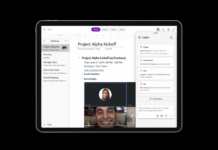Freedom to share apps for free in Play Store has brought serious problems, lack of quality and much junk. Hence, now the tech giant Google will punish poorly-made apps in the Play Store.
Now Google Will Punish Poorly-Made Apps In The Play Store
Google, unlike Apple, allows free placement of applications by their developers. This freedom has brought serious problems, lack of quality and much junk that exists in the Play Store. The number of poorly designed apps shade the quality software that exists also to a large extent, but Google wants to close its system to make the offer safer, more rigorous and much more quality.
This is a strategy that Apple has followed forever, but now Google has also realized that this is the only way to limit these things.
There are now a lot more applications for Android than for iOS, but actually, the complaints of Android users let you realize the concerns of Google. The Play Store has lots of useless, poor quality and very insecure applications. Of course, Google has been encouraging programmers to create high-quality applications for years, but their efforts have not always been successful.
To get around the problem, Google has set a new guideline. For apps that perform poorly in terms of stability and power efficiency, Google may reduce its visibility in the Play Store.
Free system synonymous with the secure system?
While Apple keeps tight control over applications that may be available on the App Store, Google’s approach has always been too lenient. The result is that while the Play Store attracts programmers in learning and facilitates developer creativity, some applications fail constantly, crash, or even have abrupt power consumption.
In an effort to reaffirm its commitment to improving the Android experience and overall device performance, Google wants to focus on the speed, security, and stability of the operating system, not just for end users but also for programmers. This will only make a system much more capable of reaching millions of users and programmers.
We have seen that Google is tidying the house, recently we have seen the American company introduce Project Treble to enhance Android’s cooperation with manufacturers’ needs in order to offer all users a quality user experience. We have also seen that there are other efforts to contain abuses, and it will not be surprising that Android apps can deny installation on root devices.
The “making” of applications can see the tightest rules, receive various metrics and scores on the stability of your applications, rendering time and battery usage.
More specifically, Google collects the following data:-
- Non-response rates of application (ANR)
- Failure rate
- Slow rendering
- Freeze Screen
- Inactivation locks (the application keeps the device active for more than an hour)
- Excessive wake-ups (the application activates the device more than 10 times per hour)
Using these metrics, Google wants to find out which apps are below 25%. If your application is within these parameters, it may no longer be visible in the Play Store.
We remind you that in February the company announced that an app’s performance will affect its “promotion,” which means that with Google’s new initiative, applications must meet minimum standards and meet the metrics mentioned about the risk of Not being visible in the Play Store.
With millions of applications available right now, the Google Play Store has faced a lot of criticism of fake applications, low-end applications, and malware applications in recent years. Therefore, Google’s new program promises to set stricter standards and is certainly a welcome change.


